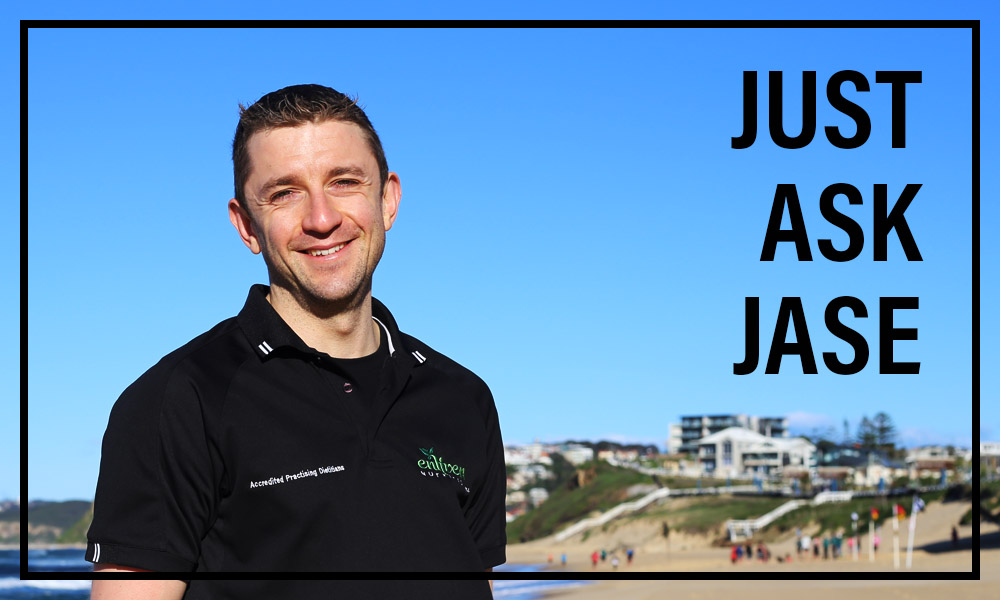
Hi Jase,
Like so many people, I want to lose some weight that has crept on over the last couple of years. I am terrible with the dieting thing, and have been told about the mindful eating “Non-Diet” approach by a friend and it sounds like a great way to achieve the weight loss I am after. What are your thoughts on this?
– OverConsidered

Thank you for your question!
There are countless weight loss strategies and movements going around that sound so appealing compared to the old adage of “starvation” to achieve the goal of sustainable weight loss. The “non-diet approach” using mindful eating has gained a considerable amount of publicity as it strays from the norm of most weight loss methodologies where significant restrictions of some kind are imposed. This could be food group elimination, specific nutrient elimination (i.e. refined sugars) or simple energy/calorie restriction.
Where the mindful eating “non-diet approach” differs to these is that it shifts the restrictive focus towards building a more intimate nature with the foods and drinks you consume. Common areas that you would focus on without the elimination of food groups or specific nutrients include:
- Portion size awareness
- Recognising the timing required following a meal for the satiety cues to initiate
- Understanding what foods provide you personally with enhanced satiety
- Understanding the validity of your own “hunger cues” which may for example be triggered by boredom, dehydration or certain environmental influences
- Becoming aware of how you view food (i.e. removing any negative associations with food such as rewarding yourself with food following a stressful life event)
- A focus to be mindful of what foods are nutrient dense (wholefoods) and what are usually nutrient poor (refined and processed foods) and placing a greater emphasis on consuming more of the nutrient dense foods.
- Enhancing your relationship with yourself and food, which is quite often linked to those times of indulgence which can lead to negative thoughts about the individual, blame cycling and ultimately depressive tendencies.
Now there is one bugbear that I have with the mindful eating “non-diet approach”. The absolute requirement to achieve weight loss is to manipulate energy/caloric balance. The journey of successful and sustainable weight loss is built upon satisfying the laws of thermodynamics which requires you adopt a food as fuel mentality (something we have pioneered at Enliven Nutrition).
So to do this, you need to do the following:
- View your body as a car
- View food and drinks and the calories they contain as the petrol for your car (body)
- Understand that movement/physical activity of any kind burns fuel (calories)
- View extra bodyfat as highly efficient forms of reserve fuel tanks
To remove body fat, the body (your car) requires a deficit of fuel from food and drinks (measured in calories) to require your body to tap into those reserve fuel tanks (excess body fat) and deplete them until they are no longer there. This is the basic mechanism of weight loss.
The issue with mindful easting is that you are not quantifying anything, from how much fuel your body needs, how much fuel you are consuming each day and how much fuel you are expending via physical activity. Without this knowledge you can never calculate an expected weight loss rate from your efforts of truly gain an understanding of how much fuel your body needs, and just how much fuel is within different foods and drinks.
Now we do see mindful eating providing some level of results as people are reducing their fuel intake via portion control and an enhanced sensitivity to ones own satiety cues. Additional benefits are seen from consuming a lesser amount of highly processed and refined foods in place of wholefoods which are naturally lower in fuel (calorie) content. However without quantifying the above areas, your results will always be limited and the sustainability of those results highly questionable.
Being mindful is great as a supplementary focus on your weight loss journey, however you must not ignore the biological process required to achieve weight loss, and if you do it will most likely result in one more failed weight loss attempt within the community which is seen in 95% of weight loss journeys in today’s world!
— Jase
Got a nutrition or training question? Or just want to know how to become better than yesterday?










